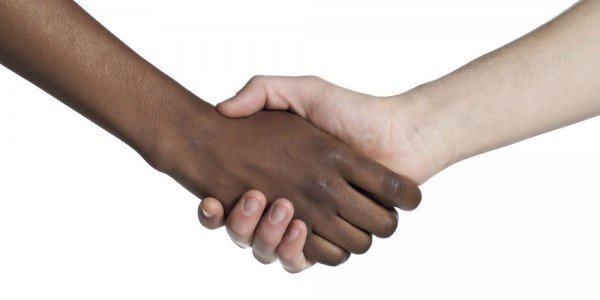Growing up in a transracial family is complicated. How do you create an environment where everyone is comfortable? That is the challenge for many TRA families who have adopted children of color and also have biological children who are white. It becomes a balancing act on scales that can be tipped according to personality.
At 43 years old, I am wrestling with the effects of an unbalanced life, according to some of my siblings. I have been strategically cut out of the lives of my two brothers. My oldest brother has separated himself from the family in what feels like an open protest against the way he was raised.
My other brother is in contact with the family but fails to recognize me as more than an acquaintance. When I stroll through his living room, his walls are filled with family pictures that chronicle a life growing up in the ’70s and ’80s. My eyes scan the pictures, and one by one I look for my presence in this life. I find one small picture that could easily be missed by the scanning eye. It is a portrait picture of my brother and me but my skin is so light that if my hair were straight I could pass for a dark-tanned, white child. The pictures that I have given to him as Christmas gifts of me and my family are absent from his display.
Our family doesn’t talk about deep issues like this so I am left to piece together this painful puzzle myself. And no matter how I arrange it, the answer and pictures are always the same. I represent the cause of what my brothers feel was an unequal life.
Early on in my life, my parents decided to move from a white suburb of Detroit to the inner city of Detroit. It was to be for my benefit. I assume that my brothers resented the fact that they had to grow up being the minority in so many situations. In their minds, if you took me away their existence improves. Deny my presence on the wall of pictures and maybe life can become more normal. Cut off all ties to the family and you can walk away from a life you resent. If you are away from your brother of color, no one will ever know you are a transracial sibling.
There were great sacrifices made to allow me to grow up with some connection to the black community. Those sacrifices meant I would grow up with pride in who I am as a black man, with a connection to a community I love. To connect me with my color, did we create a situation where the celebration of my color stole the color from my brothers and made them invisible?
Can TRA families get so obsessed with meeting the needs of the child of color that they create invisible children?
This is a danger and a reality that I am presently trying to sort out. I think my brothers would say that too much attention was given to my needs and not enough attention was given to theirs. Though I enjoyed the way I was raised, I wonder what could have been done to prevent this split.
The answer is surprisingly simple.
Our family should have communicated more. The invisible boys should have been given a place to talk and sort out what they were feeling and thinking. When we were growing up the effects of transracial adoption on the entire family was not well known. No one told us what to do or how to do it or what to address and what not to address. In the era we grew up in, many agencies would tell adoptive parents to go home and ignore the fact that their child was adopted. You can imagine the misinformation that was given to transracial families.
Indirectly, I feel responsible for the Grand Canyon-sized crack in our family. I too follow my brother’s logic; without me, this doesn’t happen. The turmoil doesn’t occur and no one is estranged. But I also know I have a choice as to how I respond to things in my past. I can see them as weights that keep me down or as step stools I use to get to the next level.
Thankfully, my sister saw this experience differently. It allowed her to see the world from a new perspective, which added color to her life. It did not take it away. She chose to see it as an advantage and not a disadvantage. She used her experience as a stool and not weight.
Part of my purpose as a voice for a transracial family and adoptees is to share the good and the bad. I must show what could potentially happen so transracial families can avoid the mistakes our family made. They can be made aware of potential issues. That way families can have conversations to address what we didn’t. This creates tools that allow for a better perspective, instead of creating invisible children that never reach their potential because they are connected to the weight they can’t release.
Written by Kevin Hofmann, author of Growing Up Black in White
Are you ready to pursue adoption? Visit Adoption.org or call 1-800-ADOPT-98 to connect with compassionate, nonjudgmental adoption specialists who can help you get started on the journey of a lifetime.
